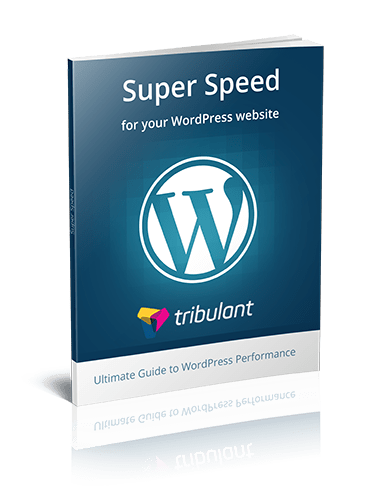
10 Pitfalls of WordPress Website Design

WordPress as a web building tool has cemented its place as one of the most famous and widely used CMS in the World. The reason for its popularity is the amazing features and attributes that are housed by the platform.
However, apart from its long chain of benefits, WordPress too like all other platforms suffers from some drawbacks.
WordPress Website Design Drawbacks
In this post, we are going to list out the top 10 pitfalls of WordPress website design.
1. Open Source
Many would consider the open source nature of WordPress as an advantage or positive point of it. You get a free access of the platform and can add your own modifications and feature enhancements in it. However, being open source exposes your WordPress website to a threat from hackers. As it is the widely used CMS platform in the market, this is also the reason for it being targeted by spammers.
Even though your website becomes vulnerable to a lot of malicious activities you can always enhance its security. With WordPress, you get to choose from a wide range of security plugins that will keep all the security attacks and hackers at bay.
2. No Official Support Services
Once you have developed your website using WordPress, it is evident that you may need some technical assistance at some point in time. As such WordPress doesn’t offer any sort of assistance to the users from its end. So, if you are one of those who only relies on official support services then with WordPress you won’t be getting that.
However, WordPress has a tremendous community support. There are a number of support forums that have thousands of active users. The possibility of you getting a solution for your query or the needed technical help is really high.
3. Reduction in Speed of Your Website
WordPress implement a lot of plugins and generic codes for integrating a particular functionality into your website. This will have a significant impact on the speed of the website and increase its load time. Talking from the perspective of a business, a website that takes time to load will often see visitors leaving it.
The issue of low speed of your website can be addressed by choosing a high-speed hosting service. Using a content delivery network (CDN) will also have a positive impact on the load time of the website.
4. Frequent Updates
WordPress is known to release frequent updates in order to enhance its functionality and security. Although these updates are beneficial, in some cases they may have a negative impact on the performance of your website. Specifically talking about the plugins they also need to be updated as the previous versions of these plugins won’t be supported. Along with this, after every update, there is a constant fear about the loss of data.
Although there are many negative aspects of the frequent updates, you can easily deal with the situation. This can be done by updating the plugins regularly and creating a backup of your website’s data. There are many options available like automatic backups that will create a backup of your website on a regular basis.
5. Technical Skills Are Needed
WordPress is a user-friendly platform, although it demands some amount of technical knowledge for making all the customizations. You need to have a significant grasp over coding. It will be required to create custom admin columns, taxonomies, filters, post types etc. There are many other CMSs that require zero amount of coding knowledge.
You can always hire a WordPress developer or a company that will deliver custom WP services to you. This will enable you to develop a website that will be based on your requirements. With WP, there is a wide range of customization options that can be made use of.
6. Inconsistent & Incomplete Documentation
WordPress consists of some pages regarding specific functions on its codex that contains a notice which invites people to document the function. You will also find certain undocumented features and functions. This will demand a lot of your time in reviewing the code in order to know about the purpose of these features. There is no relevant information that is provided and even the source is unknown from where you can explore about it.
7. Lack of Adequate WordPress Tutorials
Firstly you need to find some WordPress enthusiasts or some reputed classes for having a complete knowledge about the platform. There will always be a possibility that the tutor is himself not well-versed with WP himself. In such a case debugging your WordPress website will be a tedious job. All the efforts that you make in building your WP website will be in vain even if a small concept is not clear to you.
8. Content is Generated By Users
In WordPress, the profile and the login pages are by default designed as the admin pages. Due to this the users that are registered on WP are considered as the website owners or the editors. As a result of this, allowing the users to create a content apart from a comment via a non-admin page is a tough job.
This can cause some serious headaches to users who want to create a website that consists of a huge user base.
9. High Consumption of CPU Power
Most of the WordPress users are not aware of the fact that in order to perform well, it utilizes a lot of CPU power and memory. There are a lot of resources that are demanded by WordPress from the server end. You might even feel the need to use a caching plugin which will have an impact on the overall performance. If your website is utilizing a number of plugins along with a premium theme you will need a good WordPress hosting.
There are some famous WordPress hosts like WP Engine and SiteGround that are really good and inexpensive also.
10. MySQL Database Backend
WordPress makes use of the MySQL database as the backend that is not very secure. This will make your website vulnerable to cyber attacks. Hackers can easily attack and have a control over your website.
However, with the release of the 3.9 version of WordPress, MySQLi is used instead of the old MySQL driver. This driver is much more secure and reliable than the previous one.
In The End
WordPress is an amazing platform that can be utilized for building top-notch websites. However, from the above-mentioned pitfalls, it is clear that WP also has some disadvantages or demerits. But one liberty that WordPress provides you that is non-existent on other platforms is the wide range of customization options. This will enable you to get a website developed according to your needs and requirements.

Alana Berge is working for Awebstar. A <a href="https://awebstar.com.sg/service/wordpress-website-development-singapore.html" target="_blank" rel="nofollow noopener noreferrer">WordPress Development Company</a> based in Singapore. She writes contents on Web Design & Development, Internet, Social Networks, SEO, etc. Apart from this, she has helped a number of startups grow their business online! You can connect with her on <a href="https://twitter.com/AlanaBerge0" target="_blank" rel="nofollow noopener noreferrer">Twitter</a>.
Beautiful Newsletter Templates
Professional newsletter templates that are fully responsive for desktop, tablet, and mobile. They are 100% cross-client compatible.



This is really true. I have been using WP since last 8 years. Its getting too much complicated day by day to work with WP.
Too many updates, too many problems in Codex consistent guidelines, number of compatibility issues of plugins and many more…
Actually my point is this:
I am a professor of Physics and Electronics and Robotics. I want just to publish my articles and the related study material for my students on my website.
But with WP, initially, it was quite good. I never needed to study the entirety of WP except for simple post and page publishing and some routine things.
But now whenever, I open my dashboard, I find lot many problems like plugin’s compatibility issue, SEO problems, decreasing ranking of my website (www.vsagar.org) on Google and all that…
I am now planning to shift to simple and user friendly readymade module…
Please suggest if any…!
Thanks for taking the time to put this post together.